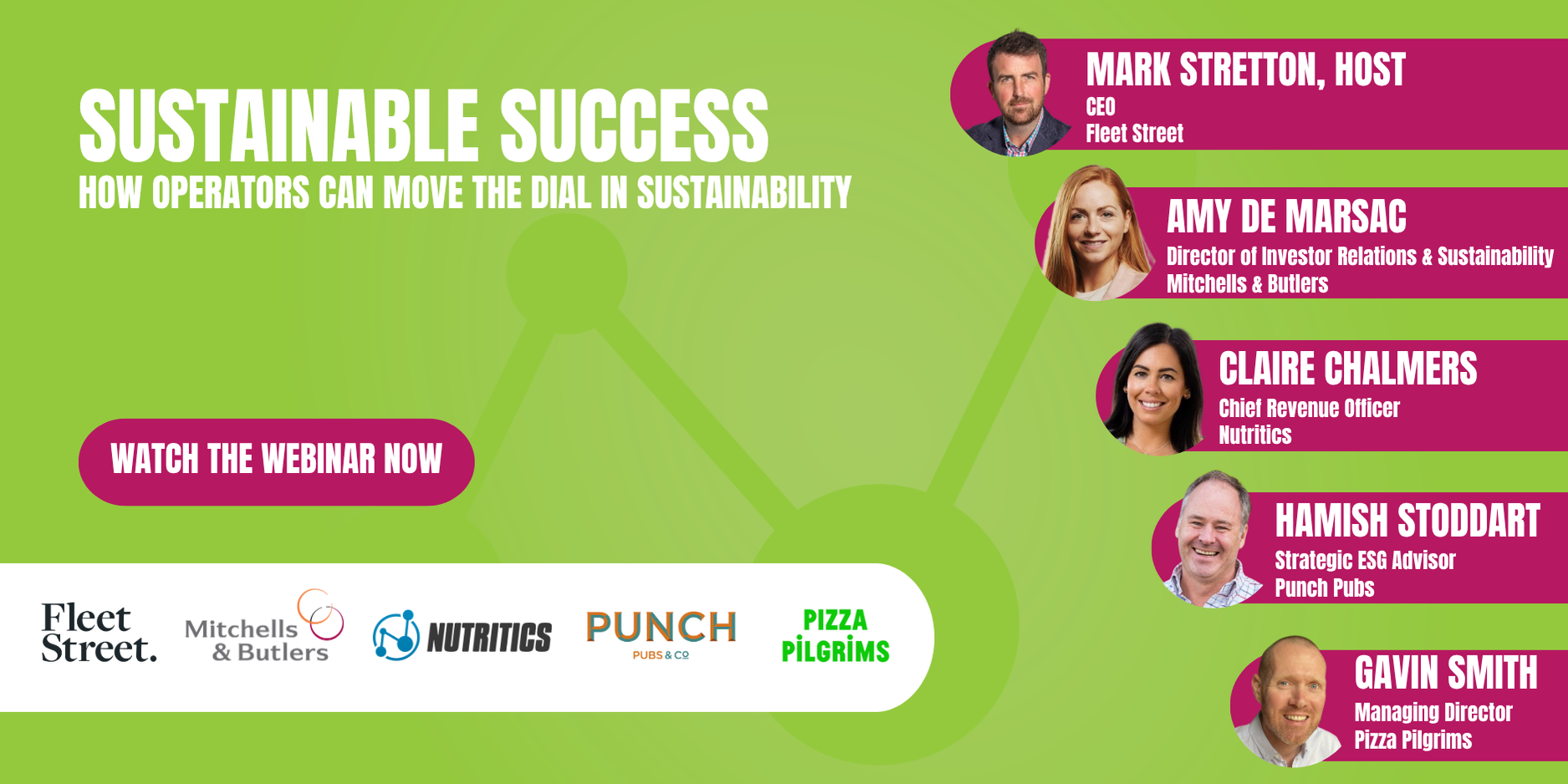The hospitality industry is under increasing pressure to become more sustainable – and not just for the sake of the planet, but to remain relevant, attract talent and meet evolving guest expectations. While the commitment is clear, the path forward isn’t always a straight one. Success lies in aligning sustainability with business goals and making it part of the core strategy, not a side initiative.
To get under the bonnet of some of the key issues and understand further what practical and operational changes can be made, Nutritics hosted a webinar to hear from expert hospitality leaders:
- Amy De Marsac, Director of Investor Relations and Sustainability at Mitchells & Butlers
- Hamish Stoddart, Strategic Advisor at Punch Pubs & Co
- Gavin Smith, Managing Director at Pizza Pilgrims
The discussion was hosted by Mark Stretton, CEO, Fleet Street, joined by Claire Chalmers, Chief Revenue Office, Nutritics.
In the webinar it quickly becomes apparent that there is no one magic action helping hospitality leaders drive real, lasting change in today’s challenging landscape.
These are the points that emerged as the key steps to tangible success across the triple bottom line:
- Make sustainability commercially viable
Sustainable initiatives must be tied to financial performance – from reducing waste to cutting energy costs, efforts that also support the bottom line are more likely to gain long-term traction. - Invest early — and think long term
Real progress often requires upfront investment. The return may not be immediate, but the long-term payoff in operational efficiency, customer loyalty and brand equity is clear. - Get early buy-in from teams and stakeholders
Engaging people from the start helps avoid future roadblocks and builds a shared sense of purpose. Leadership support is essential, but so is alignment across teams and key stakeholders. - Bring suppliers and partners on the journey
Sustainability doesn’t stop in your sites. Creating greener supply chains and working collaboratively with partners strengthens your overall impact. - Think beyond cost savings
While energy efficiency and waste reduction can lower costs with more immediate, tangible results, the real, long-term value comes from improved guest experience, repeat visits and stronger employee engagement, loyalty and longer tenure. - Measurement
You can’t manage what you don’t measure. Clear metrics and tracking systems are key to meeting sustainability goals. And it can’t be a tick-box exercise, gaining additional accreditations like B Corp status can also act as a valuable framework to work by. - And finally – stay responsive to change
Cost pressures and shifting consumer behaviours are ongoing challenges. Operators remaining agile and devoted to innovation will be best positioned for sustainable success.
To hear from the panel of experts directly, watch our webinar here.
